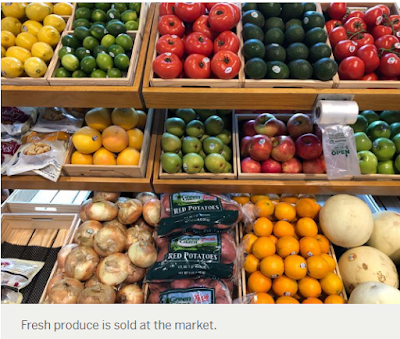The journey from farm to table is a complex symphony, with each note guided by a set of harmonious regulations and laws. The intricacies of the food industry are not only about flavors and textures but are deeply rooted in legal frameworks that ensure the safety, quality, and transparency of the food we consume. In this exploration, we embark on a journey to decode the fundamentals of food laws and regulations, shedding light on their significance and the indispensable role they play in shaping the culinary landscape.
Unveiling the Basics : What Are Food Laws and Regulations?
At its core, food laws and regulations are the legal parameters that govern the entire food production and distribution process. These comprehensive frameworks are designed to safeguard consumers, uphold industry standards, and maintain the overall integrity of the food supply chain. From the agricultural fields to the supermarket shelves, these produce laws create a robust structure that ensures the safety and quality of the food we bring into our homes.
The Guardians of Safety : Regulatory Agencies in the Food Industry
The responsibility of overseeing and enforcing food laws falls into the hands of various government agencies. Institutions like the Food and Drug Administration (FDA) and the United States Department of Agriculture (USDA) in the United States, along with their global counterparts, act as the guardians of consumer safety. Their vigilant oversight ensures that food producers adhere to established standards, promoting the well-being of the public. You can also consult from Food lawyer for further consultation.
A Game-Changer : The Food Safety Modernization Act (FSMA)
One of the pivotal moments in the evolution of food regulations came with the enactment of the Food Safety Modernization Act (FSMA). This transformative piece of legislation shifted the paradigm from reactive measures to preventive strategies. By focusing on preventing contamination rather than merely responding to it, the FSMA has set a new standard for ensuring the safety of the U.S. food supply.
The Backbone of Quality : Standards and Specifications
Quality standards serve as the backbone of food regulations, ensuring consistency and integrity. Whether it's the grading of meat or the classification of produce, these standards play a pivotal role in maintaining a level playing field within the industry. They are the benchmarks that define the quality of the products that reach our tables.
Traceability : A Crucial Element for Safety
Traceability is not merely a buzzword; it's a fundamental aspect of ensuring food safety. Regulations mandate the meticulous tracking and documentation of food products throughout the entire supply chain. This traceability enables swift identification and resolution of potential issues, creating an additional layer of protection for consumers.
Ensuring Compliance : Inspections and Audits
Maintaining compliance with food laws involves a system of inspections and audits conducted by regulatory agencies. These processes are designed to ensure that food producers adhere to established regulations. The thoroughness of these inspections contributes to fostering a culture of compliance within the industry.
Emerging Frontiers : GMOs, Novel Foods, and Ethical Considerations
As the food industry evolves, regulations adapt to address emerging challenges. Genetically modified organisms (GMOs), novel foods, and ethical considerations in food production present new frontiers for regulators. Navigating these complex issues requires a delicate balance between innovation, consumer safety, and ethical practices.
Conclusion
In the intricate ballet of the food industry, the steps are choreographed by the laws and regulations that guide every aspect of the production and distribution process. From the freshness of produce to the accuracy of nutritional labels, these regulations are the unseen hands that shape our culinary experiences.
.jpg)


